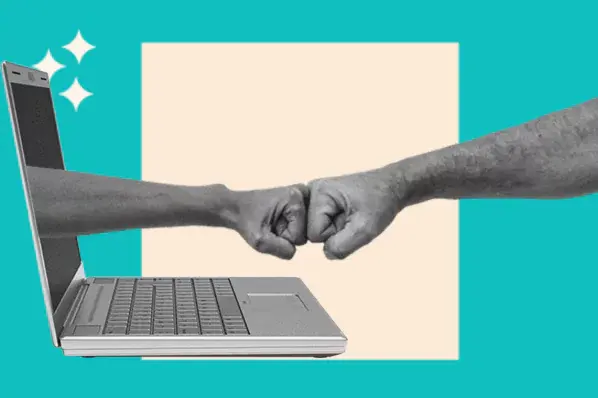“Despite some opinions, salespeople do have a ‘Bill of Rights.’ “ -David Sandler
Many years ago, David Sandler -- a sales training and personal development pioneer -- summarized the inalienable rights all salespeople hold.
This powerful list has made a big difference in my life, and recently I’ve noticed its principles are relevant to the emerging discipline of social selling. Here are the top 10 rights of social sellers. (The italicized notes are mine.)
1) You have the right to your dreams, desires, and expectations.
No one may take those away from you, even under the pretence of acting “for your own good.”
No one can tell you the proper platform for pursuing those dreams, desires, and expectations. You can choose how and where to make your mark.
2) You have the right to want what you want.
In “Think and Grow Rich,” Napoleon Hill wrote, “Whatever the mind can conceive and believe, it can achieve -- if you are ready.”
Today, being “ready” means knowing about your ideal customer’s world -- and effectively using social media to demonstrate your knowledge and help them apply it.
3) You have the right to like yourself as you are.
Your “head trash” is part of the human condition. We all have psychological trash.
People can and do say hurtful things, especially when they’re anonymous. You don’t have to take any of it personally. As long as you’re authentic, you can craft your online personal brand however you like. Present your best self and be proud of it.
4) You have the right to change.
Bob Dylan may have said it best: “He who is not busy being born is busy dying.”
If something’s not working in your social selling regimen, that’s just a signal that you’ve still got an adjustment to make.
5) You have the right to fail.
There is no need to make excuses for attempts and failures. You have the right to them.
Mistakes are how you learn. Making one mistake on social media doesn’t mean you should avoid LinkedIn, Twitter, and Facebook for the rest of your career. It means you’ve learned something new, and you’re ready to evolve your approach.
6) You have the right to be imperfect.
Anyone who thinks you’re supposed to be perfect is simply wrong.
You may not know all the best practices online, but guess what? Neither does anyone else. Do what you can now, with what you know now. Mistakes make you human, and imperfections are often what makes you stand out from the crowd.
7) You have the right to choose.
In every moment, in every situation, you get to choose your response.
What really matters is not what happens, but how you respond. That’s true for all aspects of sales, but particularly social selling. You get to choose who you connect with and with whom you do business.
8) You have the right to ask.
Expect rejection -- it will help you grow. Ask. Never, never beg. And keep asking.
And feel free to ignore unsolicited advice from people online who misread your attempts to connect and start a conversation as a plea for their help. You have the right to ask, and they have the right to say no. That doesn’t mean either party is wrong.
9) You have the right to decide how you will use your time and energy.
At the end of the day, this is your decision and yours alone.
Notice what’s working in your social selling and what isn’t. The most effective social selling interactions lead to voice-to-voice and face-to-face business conversations. That’s probably where you will want to invest your time and energy, but don’t feel like you must do anything.
10) You have the right to lunch, once you have paid the price.
You’ve probably heard the saying, “There is no such thing as a free lunch.” This means that a person or a society cannot get "something for nothing." It’s true that nothing is free in life, but it’s also true that anything worthwhile can be earned!
“Paying the price” may sound like a whole lot of work, but David Sandler taught selling doesn’t have to be difficult. The sheer volume of opportunity you can uncover by, say, leveraging your LinkedIn network to generate qualified referrals is mind-boggling. There is no free money on social networks, but there are opportunities for those willing to do the work. And it’s far easier work than you imagine.
The inalienable rights you’ve just read each represent a “line in the sand” worth drawing. They’ll help you maintain perspective, composure, and dignity while pursuing, without apology or regret, the noble profession of sales -- both online and off.
For ideas on the best ways to use LinkedIn to support your sales process, see our book LinkedIn The Sandler Way, which is available as a free PDF download.











